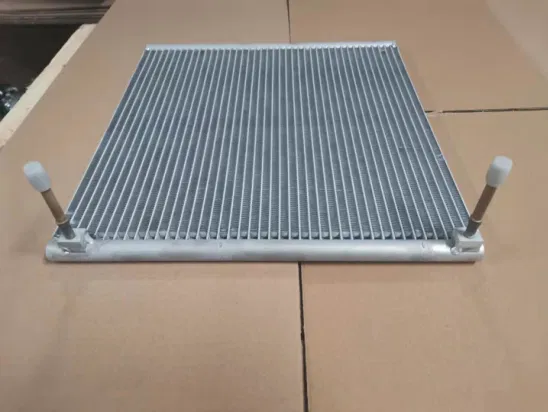In the rapidly evolving field of medical technology, the importance of effective thermal management cannot be overstated. The performance and reliability of medical devices are heavily dependent on maintaining optimal operating temperatures. Excessive heat can lead to device malfunction, reduced lifespan, and potentially harmful consequences for patients. One innovative solution that has gained prominence in this context is the microchannel heat exchanger.
Ensuring Device Reliability and Safety
Medical devices, ranging from diagnostic equipment to therapeutic tools, often involve sophisticated electronics that generate significant heat during operation. Proper thermal management ensures these devices operate within their intended temperature range, thereby maintaining their reliability and functionality. A microchannel heat exchanger is particularly effective in this regard due to its high surface area-to-volume ratio, which allows for efficient heat transfer and dissipation.
For instance, in imaging devices such as MRI machines and CT scanners, maintaining a stable temperature is critical to achieving accurate results. Overheating can lead to image distortions, affecting diagnostic accuracy. Similarly, in devices like ventilators and dialysis machines, excessive heat can compromise the integrity of components, leading to potential failures and risks to patient safety. Implementing advanced cooling solutions, such as microchannel heat exchangers, helps mitigate these risks by efficiently managing the thermal loads.
Enhancing Device Performance
The performance of medical devices is closely linked to their thermal environment. Many medical devices incorporate sensitive components that can be adversely affected by heat. For example, lasers used in surgical procedures and dermatological treatments require precise temperature control to function effectively. A microchannel heat exchanger can manage the heat generated by these high-power devices, ensuring consistent performance and improving patient outcomes.
Furthermore, in wearable medical devices, which are becoming increasingly popular for monitoring and managing chronic conditions, thermal management is crucial for both device performance and user comfort. Effective cooling mechanisms ensure that these devices do not become uncomfortable or cause skin irritation, thereby enhancing user compliance and overall effectiveness.
Prolonging Device Lifespan
Thermal management also plays a vital role in prolonging the lifespan of medical devices. Excessive heat can accelerate wear and tear on electronic components, leading to premature failure. This not only increases maintenance costs but also poses a risk to patient care if devices need frequent replacements. Microchannel heat exchangers, with their efficient heat dissipation capabilities, help maintain lower operating temperatures, thereby extending the life of medical devices.
In the context of implantable devices, such as pacemakers and neurostimulators, thermal management is even more critical. These devices must function reliably for extended periods within the human body, where repair or replacement can be invasive and risky. Microchannel heat exchangers can be integrated into these devices to ensure they remain within safe temperature ranges, enhancing their durability and reliability.
Supporting Technological Advancements
As medical technology continues to advance, the demand for more compact, efficient, and powerful devices is increasing. This trend places even greater importance on effective thermal management solutions. The compact design of microchannel heat exchangers makes them ideal for integration into modern medical devices, which are often constrained by size and weight requirements.
Innovations in microchannel heat exchanger technology are also enabling the development of more sophisticated cooling systems that can handle higher heat loads while maintaining a small footprint. This progress supports the creation of next-generation medical devices that are more powerful, efficient, and capable of performing complex functions without the risk of overheating.
Conclusion
The critical role of thermal management in medical devices cannot be overlooked. From ensuring device reliability and safety to enhancing performance and prolonging lifespan, effective thermal management is essential in the medical field. Microchannel heat exchangers offer a highly efficient solution for managing the thermal challenges associated with modern medical devices. By integrating these advanced cooling systems, manufacturers can improve device performance, reliability, and longevity, ultimately leading to better patient care and outcomes. As medical technology continues to evolve, the importance of innovative thermal management solutions like microchannel heat exchangers will only continue to grow.

